
CARBONATES AND EVAPORITES
Scope & Guideline
Fostering Dialogue in Earth and Planetary Sciences
Introduction
Aims and Scopes
- Sedimentology and Stratigraphy:
The journal emphasizes research on the sedimentological characteristics and stratigraphic frameworks of carbonate and evaporitic deposits, investigating their formation processes and depositional environments. - Diagenesis and Geochemistry:
A core focus on diagenetic processes and geochemical analyses that affect the quality and characteristics of carbonate reservoirs and evaporitic formations, contributing to energy resources and environmental studies. - Karst Systems and Hydrogeology:
Research on karstic environments, including the mechanisms of karst development, groundwater dynamics, and the influence of karst features on hydrology and ecology. - Paleoenvironmental Reconstruction:
Studies that reconstruct past environments using fossil records, stable isotopes, and sedimentological data to understand historical climatic conditions and geological changes. - Reservoir Characterization:
The journal includes innovative methodologies for assessing reservoir quality and properties, particularly in hydrocarbon exploration, employing advanced techniques such as petrophysical analysis and numerical modeling. - Environmental Impact and Resource Management:
Research exploring the environmental implications of carbonate and evaporitic formations, including their roles in sustainable resource management and the impact of human activities on these systems.
Trending and Emerging
- Integrated Geochemical and Petrophysical Approaches:
Recent publications highlight the integration of geochemical analyses with petrophysical evaluations to enhance the understanding of carbonate reservoir characteristics and their economic potential. - Impact of Climate Change on Carbonate Systems:
There is an increasing focus on how climate change affects carbonate and evaporitic systems, particularly in terms of diagenetic processes and hydrological responses, which is crucial for understanding future environmental scenarios. - Advanced Modeling Techniques:
The use of advanced modeling techniques, including machine learning and numerical simulations, is gaining traction for predicting reservoir behavior and optimizing resource extraction strategies. - Karst Hydrogeology and Environmental Management:
A growing body of research addresses the management of karst aquifers and the environmental impacts of karst development, focusing on sustainable practices in resource utilization. - Microbial Influence on Carbonate Formation:
Emerging studies investigate the role of microbial processes in the formation and alteration of carbonate rocks, reflecting a trend towards understanding biogeochemical interactions in sedimentary environments.
Declining or Waning
- Traditional Biostratigraphy:
Papers focusing solely on traditional biostratigraphy are becoming less frequent as the field shifts towards integrating molecular and isotopic techniques, which provide more comprehensive insights into paleoecological contexts. - Generalized Hydrogeology Studies:
Research that does not incorporate advanced geochemical or isotopic analyses into hydrogeological studies is declining, as the field increasingly emphasizes detailed and specific investigations into groundwater interactions and quality. - Basic Sedimentological Descriptions:
There is a noticeable decrease in studies that only provide basic sedimentological descriptions without linking to broader geological, environmental, or economic implications, as more comprehensive approaches are favored.
Similar Journals
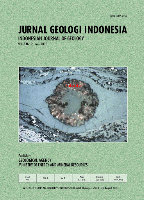
Indonesian Journal of Geoscience
Unlocking the Secrets of Our Planet Through Research.Indonesian Journal of Geoscience, published by the GEOLOGICAL AGENCY, is a vital platform for sharing cutting-edge research in the field of Earth and Planetary Sciences. With an ISSN of 2355-9314 and E-ISSN of 2355-9306, this open-access journal has been making significant contributions to the geoscientific community since its establishment in 2013. Operating out of Bandung, Indonesia, the journal is dedicated to disseminating high-quality research across diverse areas, making it an essential resource for researchers, professionals, and students alike. Recognized in the 2023 Q2 category in Earth and Planetary Sciences, it currently ranks #134/195 among general Earth and Planetary Sciences journals in Scopus, reflecting its growing prominence and academic rigor. The journal seeks to foster scientific discussions by publishing original research, reviews, and case studies that address contemporary challenges and advancements in geoscience, thus contributing to a deeper understanding of our planet. With its commitment to open access, the Indonesian Journal of Geoscience ensures that vital research is accessible to a global audience, encouraging collaboration and innovation in the field.
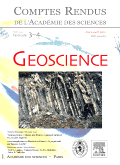
COMPTES RENDUS GEOSCIENCE
Exploring the Depths of Earth Sciences.COMPTES RENDUS GEOSCIENCE, an esteemed open-access journal published by ACAD SCIENCES since 2020, serves as a vital platform for disseminating significant research in the field of Earth and Planetary Sciences. With an ISSN of 1631-0713 and E-ISSN of 1778-7025, this French journal is located at 23 Quai de Conti, Paris, 75006, France. Focusing on various sub-disciplines, it is recognized in the 2023 category quartiles as Q2 in Earth and Planetary Sciences (miscellaneous) and Q3 in Global and Planetary Change. The journal ranks #82 out of 195 in Earth and Planetary Sciences and #79 out of 120 in Environmental Science, reflecting its commitment to quality scholarship and impactful research. The journal's open-access model enhances accessibility, ensuring that researchers, professionals, and students alike can freely engage with cutting-edge findings that contribute to a deeper understanding of our planet and its systems. The ongoing convergence of knowledge from 2002 to 2024 positions COMPTES RENDUS GEOSCIENCE as a crucial resource in the evolving landscape of geosciences.

DOKLADY EARTH SCIENCES
Innovating Research in Earth Sciences Since 1998DOKLADY EARTH SCIENCES is a reputable journal published by MAIK NAUKA/INTERPERIODICA/SPRINGER, focusing on the dynamic field of Earth and Planetary Sciences. With an ISSN of 1028-334X and E-ISSN 1531-8354, this journal offers a platform for researchers to disseminate their findings and insights that contribute to our understanding of Earth systems over a continuous publishing span from 1998 to 2024. It currently holds a Q3 quartile ranking in the Earth and Planetary Sciences category, reflecting an emerging yet significant impact within its field, evidenced by its Scopus ranks where it stands at 123rd in general Earth sciences and 113th in miscellaneous Earth sciences. DOKLADY EARTH SCIENCES aims to bridge research gaps and foster collaboration among a diverse audience including researchers, professionals, and students committed to advancing knowledge in geoscience. The journal stands as a vital resource for those seeking to explore contemporary challenges and innovations within the realm of Earth sciences.

Gondwana Research
Transforming Geological Knowledge for Future GenerationsGondwana Research is a premier academic journal published by Elsevier, specializing in the field of geology, with a robust focus on the geological history and processes of the Gondwana supercontinent. With an impressive impact factor and ranking as Q1 in the 2023 Geology category, it stands as a leading platform for disseminating high-quality research. The journal features articles that advance the understanding of Earth and planetary sciences, making significant contributions to geological education and research. Researchers will find its curated content particularly valuable, as it encompasses a wide array of topics including stratigraphy, paleontology, and tectonics, all relevant to both contemporary and historical geological inquiries. Given its substantial reach and esteemed standing—ranked 5th out of 321 in its field—Gondwana Research plays a crucial role in fostering scientific exchange among global experts. Located in the United States with publication continuity from 1997 to 2024, this journal consistently attracts submissions from leading scientists, ensuring that its readership is kept at the forefront of geological discovery and innovation.

JOURNAL OF THE GEOLOGICAL SOCIETY OF INDIA
Exploring the depths of Earth's mysteries.JOURNAL OF THE GEOLOGICAL SOCIETY OF INDIA, published by Springer India, serves as a pivotal platform for researchers and practitioners in the field of geology. Established in 1979, this journal has been instrumental in advancing geological research throughout India, showcasing both regional studies and cutting-edge global research. With its Category Quartile ranking of Q3 in the geology category for 2023, and a significant Scopus rank of 171 among 321 journals in Earth and Planetary Sciences, it remains a respected source of scholarly activity. The journal is dedicated to the dissemination of original research articles, reviews, and case studies that encapsulate the dynamic scope of geological science, thus contributing to the understanding of geological phenomena. Although currently not offering open access, the journal maintains a commitment to high-quality scholarship and aims to engage a diverse readership, enhancing the knowledge and practice of geology across various disciplines.
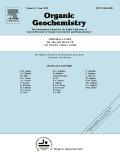
ORGANIC GEOCHEMISTRY
Transforming Knowledge in Earth and Planetary SciencesORGANIC GEOCHEMISTRY, published by PERGAMON-ELSEVIER SCIENCE LTD, is a pivotal journal in the field of geochemistry and petrology, dedicated to the exploration of organic compounds and their interactions within geological systems. Established in 1977, this journal has been an influential medium for researchers, providing significant insights and advancements that have shaped the understanding of organic geochemistry. With an impressive impact factor and a distinguished ranking of Q2 in its category, it sits at the forefront of academic research, currently holding the 46th position out of 154 in Earth and Planetary Sciences according to Scopus, which places it within the top 70th percentile. Although it operates on a subscription basis, ORGANIC GEOCHEMISTRY is recognized for its rigorous peer-review process, ensuring that only the highest quality research is published. Its scope includes an array of critical topics, appealing to geochemists, petrologists, students, and professionals looking to deepen their knowledge and contribute to this dynamic field. With converged publications extending into 2024, the journal continues to play a crucial role in the dissemination of cutting-edge research that addresses global challenges such as environmental change and resource management.
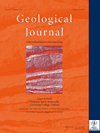
GEOLOGICAL JOURNAL
Connecting disciplines to deepen our geological understanding.GEOLOGICAL JOURNAL, an esteemed publication by WILEY, has been at the forefront of geological research since its inception in 1951. With an ISSN of 0072-1050 and E-ISSN of 1099-1034, this journal serves as a vital platform for disseminating high-quality, peer-reviewed research in the field of geology. Operating out of the United Kingdom, the journal proudly features a Scopus rank of 80 out of 321 in the Earth and Planetary Sciences category, reflecting its commitment to scholarly excellence, with a 2023 category quartile ranking of Q2. As part of its innovative approach, GEOLOGICAL JOURNAL seeks to foster interdisciplinary collaborations, advancing our understanding of earth processes, materials, and history. Although it does not offer open access options, its robust subscription model ensures that both professionals and students have access to groundbreaking insights. With a publication history that spans over seven decades, the GEOLOGICAL JOURNAL continues to be an indispensable resource for the global geological community, encouraging discoveries that shape our comprehension of the planet.
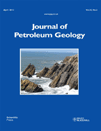
JOURNAL OF PETROLEUM GEOLOGY
Pioneering Insights for Earth and Energy SciencesJOURNAL OF PETROLEUM GEOLOGY, published by WILEY, is a prestigious peer-reviewed journal that serves as a vital platform for advancing knowledge in the fields of Earth and Planetary Sciences, Energy Engineering, and Geology. Established in 1978, this journal has cultivated a significant impact, reflected in its 2023 Q2 category rankings across multiple disciplines including Fuel Technology and Geology. Notably, it holds a commendable position in Scopus rankings, marking its importance with a 68th percentile in Earth and Planetary Sciences - Geology. While the journal operates under a traditional subscription model, its extensive repository of research articles facilitates crucial discussions and innovations among researchers, professionals, and students alike. The JOURNAL OF PETROLEUM GEOLOGY is pivotal for those seeking to explore and contribute to the evolving landscape of petroleum geology, offering insights that are essential for both academic and applied science domains.

Boletim Paranaense de Geociencias
Bridging Regional Research with Global PerspectivesBoletim Paranaense de Geociencias, published by UNIV FED PARANA, EDITORA, serves as a vital platform for advancing knowledge in the field of Earth and Planetary Sciences, contributing significantly to discussions surrounding geological research and discovery. With an ISSN of 0067-964X, this esteemed journal primarily features studies that reflect regional geological contexts while also addressing wider planetary science issues. Although it currently holds a Q4 category quartile ranking and a 15th percentile in the Scopus rankings within its field, the journal remains committed to disseminating valuable insights and fostering academic discourse. This is of particular significance as it tirelessly updates its publication scope, aiming to include contributions from diverse geological studies both regionally and globally. While it operates on a printed basis, researchers and students alike will find the Boletim’s progressive discussions critical for understanding the dynamic processes shaping our planet.
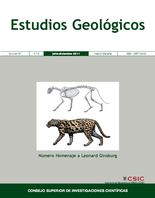
ESTUDIOS GEOLOGICOS-MADRID
Unveiling Geological Insights for a Sustainable Future.ESTUDIOS GEOLOGICOS-MADRID is a prominent journal in the field of geology, published by the esteemed Consejo Superior de Investigaciones Científicas (CSIC) in Spain. Established in 1976, this Open Access journal has been a vital resource for researchers and professionals since its inception. With an impact factor reflecting its contribution to the Earth and Planetary Sciences community, ESTUDIOS GEOLOGICOS-MADRID currently holds a Q3 category ranking in Geology as of 2023, showcasing its relevance and quality within the discipline. The journal publishes a diverse array of geological studies, ensuring wide-reaching access to significant research findings, thereby promoting collaboration and knowledge sharing. Established as a platform for both foundational research and applied geology, this journal fosters academic growth and contributes to understanding the Earth’s processes. Researchers, professionals, and students are encouraged to explore its extensive archive, which includes publications from 1976 to the present. For more information, visit the journal's editorial office at Editorial CSIC, C/VITRUVIO 8, 28006 MADRID, SPAIN.